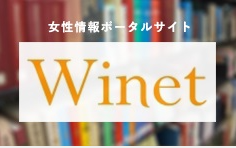About NWEC
- HOME
- About NWEC
- Message from the President
Message from the President
Envisioning a Society Where Everyone Can Fully Demonstrate Their Individuality and Ability

The National Women's Education Center (NWEC) was founded in 1977 as Japan's only national educational institution for women, with the aim of promoting efforts to create a gender-equal society. Since then, NWEC has been working in collaboration with gender equality promotion centers, women's organizations, local governments, universities, schools, and companies across Japan. In addition, NWEC has continued to play a role as a focal point in creating a genderequal society by holding seminars that promote women's education and gender equality, offering support for education and learning, conducting specialized research, and providing information and material. NWEC has been continuously working to strengthen the foundation of a gender-equal society by approaching not only instructors and stakeholders in women's education and leaders promoting gender equality in various fields, but also men and younger generations.
The Working Group for Enhancing Functions of the NWEC and Gender Equality Centers was established within the Cabinet Office in December 2022. It has been striving to create a gender equal society across the country by discussing various issues based on two policies. The first is to strengthen the center's functions of training skilled people as a hub by transferring the NWEC's management to the Cabinet Office (the Ministry of Education, Culture, Sports, Science and Technology has continued to have joint jurisdiction) in order to fully support all centers across Japan. The second is to enhance each center's functions of educating and securing professional talents, and reinforcing coordination between related institutions and organizations in order to fully perform its role in response to each region's issues. The report compiled in April 2023 clearly showed more than 40 issues that the NWEC would have to tackle after its transfer to the Cabinet Office based on the necessary fortification of workforce and an adjustment in budget.
In the Global Gender Gap Report released in 2024, Japan ranked 118th among 146 countries, continuing to hit a new record low. In order to improve this situation, we are taking steps to address the issues indicated in the 2024 report. For example, to strengthen cooperation with local governments and the centers across the country, we are actively exchanging opinions. We have also begun to provide accompaniment assistance on a trial basis to course development and formulating measures for gender equality.
As for our activities, we will continue to provide people from different age groups across a wider area with online learning opportunities using ICT. That includes on-demand self-learning content and live-streaming seminars. We will also conduct Face-to-Face group seminars. Utilizing the approximately 150,000 volumes of books and local government documents, data on gender equality we have compiled, and international networks that we have established, we will strive to increase opportunities to collaborate and cooperate with as many stakeholders as possible, such as companies,universities, schools, and non-profit organizations.
We thank you for your continued support and cooperation.
March 31, 2025
Natsuko Hagiwara
President
National Women's Education Center (NWEC)
- HOME
- About NWEC
- About NWEC
- Message from the President


